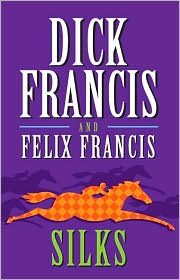

It's March; that means it's time to pick out middle school summer reading. So I'm doing two things, searching for the one required summer reading book for rising seventh graders, and reading two selections from the Virginia Readers' Choice 2009-2010 list. We (the language arts teachers) are hoping to simplify our lives this year by being able to say, "Read this one required book and then choose one other book from this great list."
I started off looking for a required book that had something to do with myths, since that's our first, short unit in the fall. It had to be as good as Percy Jackson, but not Percy Jackson, since our elementary teachers have now stolen that book from us and are reading it at the 4th and 5th grade level. (For those uninitiated who haven't read previous posts, start with The Lightning Thief by Rick Riordan.) So, I Googled "if you liked Percy Jackson," and I came up with some interesting choices, one of which was Goddess of Yesterday by Caroline B. Cooney.
I had read and enjoyed Ransom of Mercy Carter and know many students who have read and enjoyed The Face on the Milk Carton by the same author, so I had high hopes. Of course, the book was originally published in 2002, which is practically ancient to a middle schooler (almost two thirds of their life ago!), but on the plus side that means it's out in paperback.
The book is about the adventures of Anaxandra, a girl who is taken hostage from her tiny Mediterranean island home early in the book and continues through a variety of adventures that end up involving Menelaus, Helen, Paris, and the city of Troy. It's well-written and has enough excitement, intrigue and battles to soothe the injured sensibilities of boys required to read a book with a female protagonist. Meanwhile, the strong, self-sufficient heroine is bound to appeal to the girls. (No rescue bait, here, thank you very much!) In all, I thought it was excellent. I wish there were a sequel instead of the author's note at the end. It's a strong contender for the "required" book, but I haven't 100% made up my mind. It's such a lot of pressure to be asked to choose the book people are required to read. And, sadly, the cover flap gives away over half of the book.
(PG-13 for some of those battle scenes, and some hinted at adult situations that don't happen at all or don't happen "on screen.")
London Calling by Edward Bloor is off the
Virginia Readers' Choice list, and I'm so glad that I got to read it! I chose it as one of the two books I'm previewing because, from the blurb I read about it, it seemed to have some fantasy elements (I'm "the one who likes fantasy" on our team). Also, I really enjoyed Bloor's
Tangerine, which
has been on the sixth grade summer
reading list for several summers, usually garnering enthusiastic responses.
Anyway, other than being well-written, engaging, and authentic, London Calling is completely different. It's about a seventh grade boy who is aimlessly sleeping his life away, living a solitary existence in his basement, and really at loose ends. Despite how it sounds, he's not whiny or self-pitying, and it's easy to like him and identify with his fears and foibles. Martin inherits a mysterious radio from his grandmother that seems to allow him to travel back in time (in very vivid, realistic scenes) to WWII. Or is he dreaming? And if he's dreaming, why is he dreaming about things he himself has never heard of ? This book has a strong (but not at all preachy) religious element to it that I thought worked beautifully within the story. I also particularly appreciated the supporting cast, since so many YA books have the main character acting alone against the world. It was interesting to see who Martin chose to tell his secrets to, and how that worked out for him. I'm not really doing it justice here because I don't want to give away any of the mystery or angst or the well-drawn, annoying, heart-breaking, and uplifting relationships between the characters, but I highly recommend this book. There are so many different levels to appreciate.

(PG-13 . . . or PG-12 since it's on the middle school list. Some adult situations and battle scenes.)
 Oh my gosh, I adore this book! I'm not a gushy person by nature, but the book is just as fantastic as the cover art. (And, yes, I do judge books by their covers, which is unfair and probably worth its own blog.)
Oh my gosh, I adore this book! I'm not a gushy person by nature, but the book is just as fantastic as the cover art. (And, yes, I do judge books by their covers, which is unfair and probably worth its own blog.)



 It's March; that means it's time to pick out middle school summer reading. So I'm doing two things, searching for the one required summer reading book for rising seventh graders, and reading two selections from the Virginia Readers' Choice 2009-2010 list. We (the language arts teachers) are hoping to simplify our lives this year by being able to say, "Read this one required book and then choose one other book from this great list."
It's March; that means it's time to pick out middle school summer reading. So I'm doing two things, searching for the one required summer reading book for rising seventh graders, and reading two selections from the Virginia Readers' Choice 2009-2010 list. We (the language arts teachers) are hoping to simplify our lives this year by being able to say, "Read this one required book and then choose one other book from this great list."







 (R: sex, violence, language)
(R: sex, violence, language)




 (R: language, violence, sex)
(R: language, violence, sex)





